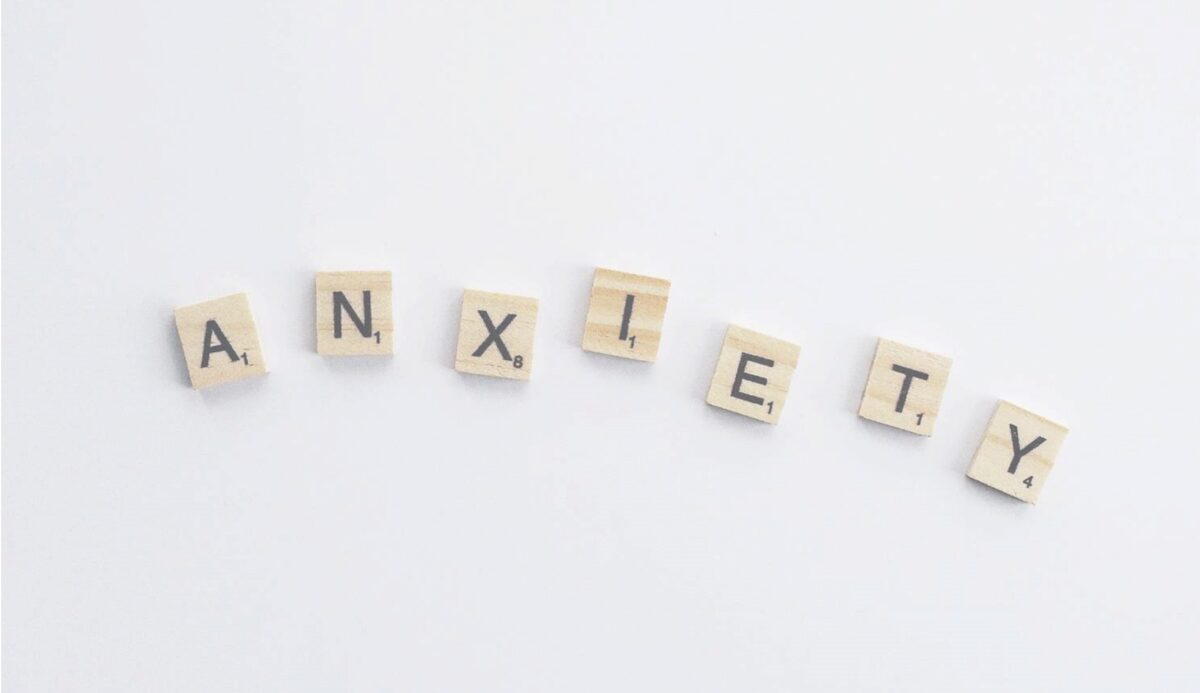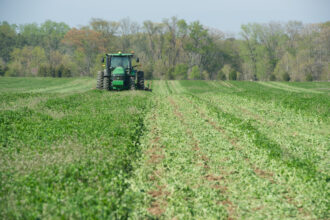
Utah State University (USU) Extension professor Josh Dallin had just wrapped up a presentation about livestock before an audience of farmers and ranchers, and he asked if there was any other information his listeners needed. The response was surprisingly out of the ordinary.
“One of our largest cattle producers raised his hand and said, ‘I’m worried about my friends and their mental health,’” Dallin recalls. The producer had heard several ranching friends say they had thought about suicide.
The cattle producer’s insights into the personal lives of his friends and neighbors showed the USU Extension staff the need in their county for wider mental health outreach. “We jumped into action,” says Dallin.
In the ensuing months they applied for and received a grant from Western SARE’s Professional Development Program. The funds helped them conduct a mental health needs assessment across the state. Informed by the survey results, the Extension staff formed an Ag Wellness Team. Also supported by the grant, the team soon developed a mental health training titled “The Biggest Asset is You.”
Since its inception in late 2020, they have delivered the one-hour training to 385 farmers and ranchers throughout Utah.
A goal of the Ag Wellness Team’s training program is “to break down the stigma surrounding mental health issues in rural areas,” says Dallin. “People often don’t want to talk about the stress they’re feeling. There’s this sense that they should just pull up their boots and go to work.”
But surprisingly, participants gave candid responses to the survey. The stressors they described ran the gamut of the daily risks and pressures of farming and ranching: crop and cattle prices, input costs, drought, too much rain, putting up enough feed for livestock, and holding onto farms and ranches owned by families for generations.
“Respondents also said they didn’t know where to go in order to get help,” says Dallin. “As we in Extension jumped into this, I could sense the urgency immediately, and we scrambled to do our part to help.”
We encourage participants to not just think of themselves as they learn how to care for mental health, but to also consider that they’re learning it to help someone else,” Dallin says. “Statistically, the chances are high of them encountering someone who needs help.”
Utah State University (USU) Extension professor Josh Dallin
Dallin speaks from personal experience. “While I was participating in the pilot training, I thought to myself, ‘I’m never going to need this.’ Two weeks later, my younger brother looked at me and out of the blue said, ‘I’m thinking of committing suicide.’ I did what I could to help my brother based on what I’d just learned at the mental health training.”
The course teaches participants the signs and symptoms of excess stress or other mental health issues. “Depression, for instance, affects a person’s ability to work, love and live; it becomes a real concern when it lasts longer than two weeks,” says Jacob Hadfield, an Extension assistant professor who is a member of the USU Ag Wellness Team. “We encourage people to watch for changes of behavior that might suggest a friend or family member is struggling with a mental health issue. A neighbor who used to take care of weeds and garbage but is now letting these things go may need our help.”
Engaging with people and learning to listen are parts of the ask-respond-connect approach the training teaches. “Asking is being engaging; ask how someone is doing, and you might find that asking more questions can be appropriate,” says Hadfield. “Your responses might motivate someone to seek help, but it can take a long time before they can actually see a professional. So follow up, and help them get the resources they need.”
Participants in the USU mental health trainings learn to ask direct questions to find out if a person is considering suicide. “If the answer is yes, ask if they know how they will do it and whether or not they have gathered the means,” says Hadfield. “Then stay with them and try to get help.”
To reduce the risk of stressors causing a mental health crisis, workshop participants learn ways to “re-set” stress. Getting plenty of exercise, for instance, can help. As can developing relationships and hobbies, and getting adequate, restful sleep.
The trainings strike a chord with participants. “We often hear people say, ‘I cannot tell you how much I needed this,’” says Dallin. “Another person said to me, ‘This is the most important workshop I’ve attended.’” Yet another participant said to Dallin, “We really are saving lives!”
The first trainings were delivered online in 2021, and the course soon caught the attention of the Utah Department of Agriculture and Food. The department designated “The Biggest Asset is You” as one of the approved trainings for its Pesticide Safety Education Program. Participants earn one safety credit for attending it.
The inclusion of the workshop on the department’s roster of trainings helps to remove the stigma that might otherwise prevent people from attending a mental health workshop. “If everyone else taking pesticide training is there—at a mental health workshop—it becomes a safe place,” says Dallin. “It makes the workshop so much more impactful.”
The department of agriculture’s welcoming of the workshop also opened doors to presenting the trainings at other field days relating to farming and ranching. These presentations continue.
“We’ve got presentations scheduled across southern Utah for this fall,” said Hadfield in early fall of 2022. “The whole state has benefited from these mental health trainings.”
Adds Dallin, “None of this would have been possible without SARE funding.”
Ongoing Help
The most important asset on your farm or ranch is you. For more information on managing stress and mental health, watch "The Biggest Asset Is You." USU Extension's Ag Wellness website, created in partnership with the Utah Department of Agriculture and Food, provides additional resources to help agricultural producers and their families manage stress.
If you or someone you know is in crisis, please contact the 988 Suicide & Crisis Lifeline.
This material is based upon work that is supported by the National Institute of Food and Agriculture, U.S. Department of Agriculture through the Sustainable Agriculture Research and Education (SARE) program. Any opinions, findings, conclusions, or recommendations expressed in this publication are those of the author(s) and should not be construed to represent any official USDA or U.S. Government determination or policy.
